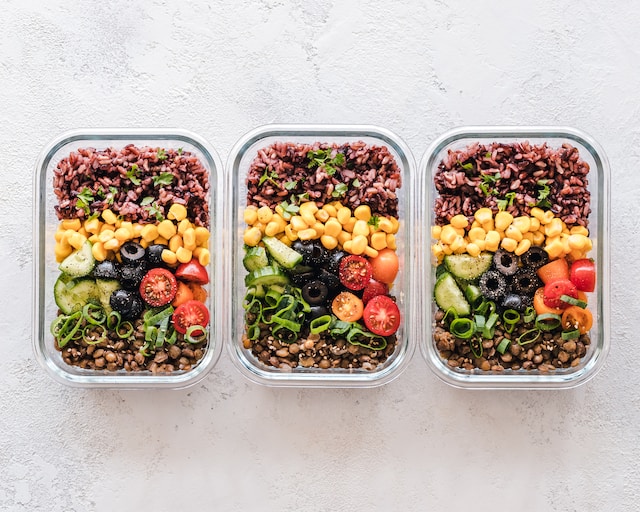Maintaining a healthy weight is a goal that many individuals strive to achieve. While exercise plays a crucial role, it is essential to recognize the significant impact our meals have on our weight.

Our eating habits not only influence the number on the scale but also determine our overall well-being. Let us take a deep look into the intricate relationship between meals and weight, debunk common myths, and offer practical tips for finding balance in our dietary choices.
Understanding the Caloric Balance
Weight management ultimately boils down to the concept of caloric balance. This principle suggests that the number of calories consumed should match the number of calories burned. If the caloric intake exceeds the expenditure, weight gain is likely to occur. Conversely, if the caloric intake falls short of the expenditure, weight loss may follow. While this seems straightforward, numerous factors can complicate this equation.
Quality over Quantity
The quality of the calories we consume is as important as the quantity. The focus should be on nutrient-dense foods that nourish our bodies, rather than empty calories that provide little to no nutritional value. A well-balanced meal should include lean proteins, whole grains, fruits, vegetables, and healthy fats. By prioritizing these nutritious options, we can fuel our bodies more effectively and promote weight management.
Portion Control and Mindful Eating
In our fast-paced society, portion sizes have become increasingly distorted. Oversized servings have become the norm, leading to excessive caloric intake without even realizing it. To regain control, practicing portion control is essential. Utilizing smaller plates, measuring food, and being mindful of hunger cues can help create a healthier relationship with food. Eating slowly and savoring each bite allows our bodies to register satiety signals, preventing overeating and aiding weight management.
The Role of Macronutrients
Macronutrients, such as carbohydrates, proteins, and fats, play vital roles in our bodies and impact our weight. Understanding the right balance and types of macronutrients is crucial. Carbohydrates provide energy, and opting for complex carbohydrates like whole grains, legumes, and vegetables ensures sustained energy levels and a steady release of glucose. Proteins support muscle growth and repair, aiding in maintaining a healthy weight by boosting metabolism. Including lean proteins like poultry, fish, and tofu in our meals is beneficial. Healthy fats, such as those found in avocados, nuts, and olive oil, help regulate hunger and provide essential nutrients. Striking the right balance between these macronutrients is vital for weight management.
The Importance of Meal Timing
In addition to the composition of meals, the timing of our meals can influence our weight. While it is commonly believed that skipping meals aids weight loss, it can actually have the opposite effect. Irregular eating patterns and skipping meals can disrupt our metabolism, leading to overeating later in the day. Instead, aim for regular meals and incorporate healthy snacks to maintain stable blood sugar levels and prevent binging.
Cultural and Emotional Influences
Our relationship with food is deeply rooted in our cultural and emotional experiences. Celebratory occasions and social gatherings often revolve around food, making it challenging to make healthy choices. Recognizing these influences and finding a balance between enjoying cultural traditions and making mindful choices can help maintain a healthy weight. Additionally, emotional eating, where food is used as a coping mechanism, can lead to weight gain. Developing alternative strategies, such as engaging in physical activity, practicing relaxation techniques, or seeking support, can help manage emotional eating and promote a healthier lifestyle.
The Power of Hydration
When discussing meals and weight, we mustn’t overlook the power of hydration. Water plays a significant role in maintaining a healthy weight. Often mistaken for hunger, thirst can lead to unnecessary snacking and overeating. Staying adequately hydrated not only promotes overall well-being but also helps control appetite and aids digestion.
Finally
Meals and weight are intricately linked, as the food we consume plays a significant role in shaping our bodies. Choosing nutritious, balanced meals can support weight management goals, promoting a healthy body composition. However, when it comes to finding entertainment and excitement, indulging in activities like an online VIP casino can provide an enjoyable escape from the concerns of weight management.
Call to Action
Achieving and maintaining a healthy weight involves more than simply counting calories. By understanding the intricate relationship between meals and weight, we can make informed choices that nourish our bodies and support our weight management goals. Prioritizing nutrient-dense foods, practicing portion control, incorporating lean proteins and healthy fats, and being mindful of our eating patterns and emotional influences can help us find balance in our dietary choices. Remember, the journey towards a healthy weight is unique to each individual, and finding a sustainable approach that works for you is key. Let your meals be a source of nourishment, enjoyment, and overall well-being.
Related Posts:
- Weight Loss Success: Is Healthy Eating Enough?
- 6 Drinks That Will Help You Lose Weight
- Listen to Your Body to Lose Weight
- 5 Tips to Help You Maintain a Healthy Weight-Loss Diet
- Quick Weeknight Meals